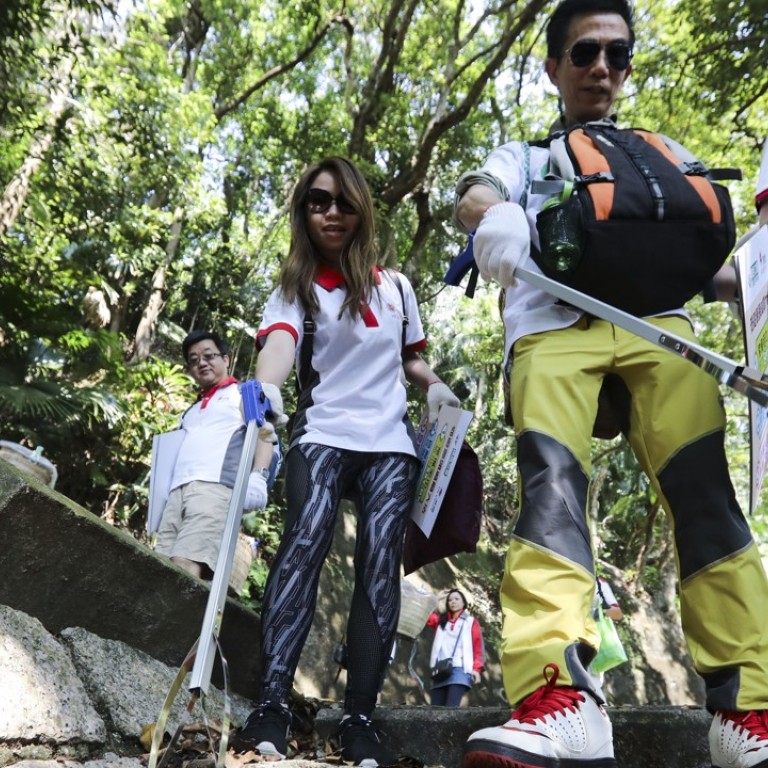
Four in five Hong Kong country park visitors back removal of rubbish bins by end of year
But half of respondents in survey by environmental group favour gradual phase-out, with many citing difficulties of taking away raw or cooked food
Four of five visitors to Hong Kong’s countryside back the removal of rubbish bins from public hiking trails by the end of the year, but half favour a gradual phase-out, a survey has revealed.
Environmental group Green Power also found that half of respondents still opted to dispose of trash in bins when they were available instead of taking them outside the parks as recommended.
The average hiker produced about one to two items of trash and the top three categories were food packaging (70 per cent), tissue paper (68 per cent) and plastic bags (49 per cent).

“While the amount of waste attributed to each hiker may seem negligible, the accumulative consequence is not,” Henry Lui, the group’s senior conservation manager, said. He stressed that most of the produced litter was avoidable had people used fewer disposable items and brought food that generated less waste such as rice balls and sandwiches.
While bins collect litter, they can also contribute to environmental problems, Lui added. Overflowing receptacles are a common sight in country parks during weekends and holidays.
While the amount of waste attributed to each hiker may seem negligible, the accumulative consequence is not
Wild animals are known to forage through bins and consume the rubbish as food. On trails near the coast, wind can sweep litter across mountainsides or into the sea, exacerbating coastal pollution.
The group’s annual Countryside Rubbish Survey, conducted between September and this month, drew 303 responses online. Similar to last year’s results, roughly half the respondents said they took their litter out of the countryside and half admitted to discarding them in bins along the way.
Eighty per cent supported a move by the Agriculture, Fisheries and Conservation Department to remove all bins from trails by the end of year. But half believed the move should be implemented in stages.
Respondents still expressed reservations about completely bin-free country parks. About 40 to 50 per cent opposed removing the receptacles from campsites and barbecue sites, citing difficulties taking away raw or cooked food.
Lui believed the policy would eventually gain public support and that there was a need for more public education.
About 10 per cent of respondents, for example, still thought it acceptable to discard fruit peels in the woods, believing them to be easily biodegradable. Lui said decomposition was in fact slow and, because most consumed fruits were not grown locally, the litter could disrupt local ecosystems.
Hong Kong is misusing its public recycling bins, green group says
The government claimed strides had been made on the issue.
“By removing bins, we have observed a reduction in litter volume, and country parks have generally become cleaner and tidier,” department assistant director Simon Chan Kin-fung said. “That’s why we’ve made the decision to remove all bins on designated trails before the end of the year.”
“Bins at barbecue sites will remain … but we will study the situation in phases and consider whether to remove bins there, too.”
A trial programme has seen the number of bins already cut in half. Litter collected along 11 trails in the programme had fallen between 33 and 89 per cent.

